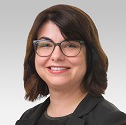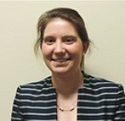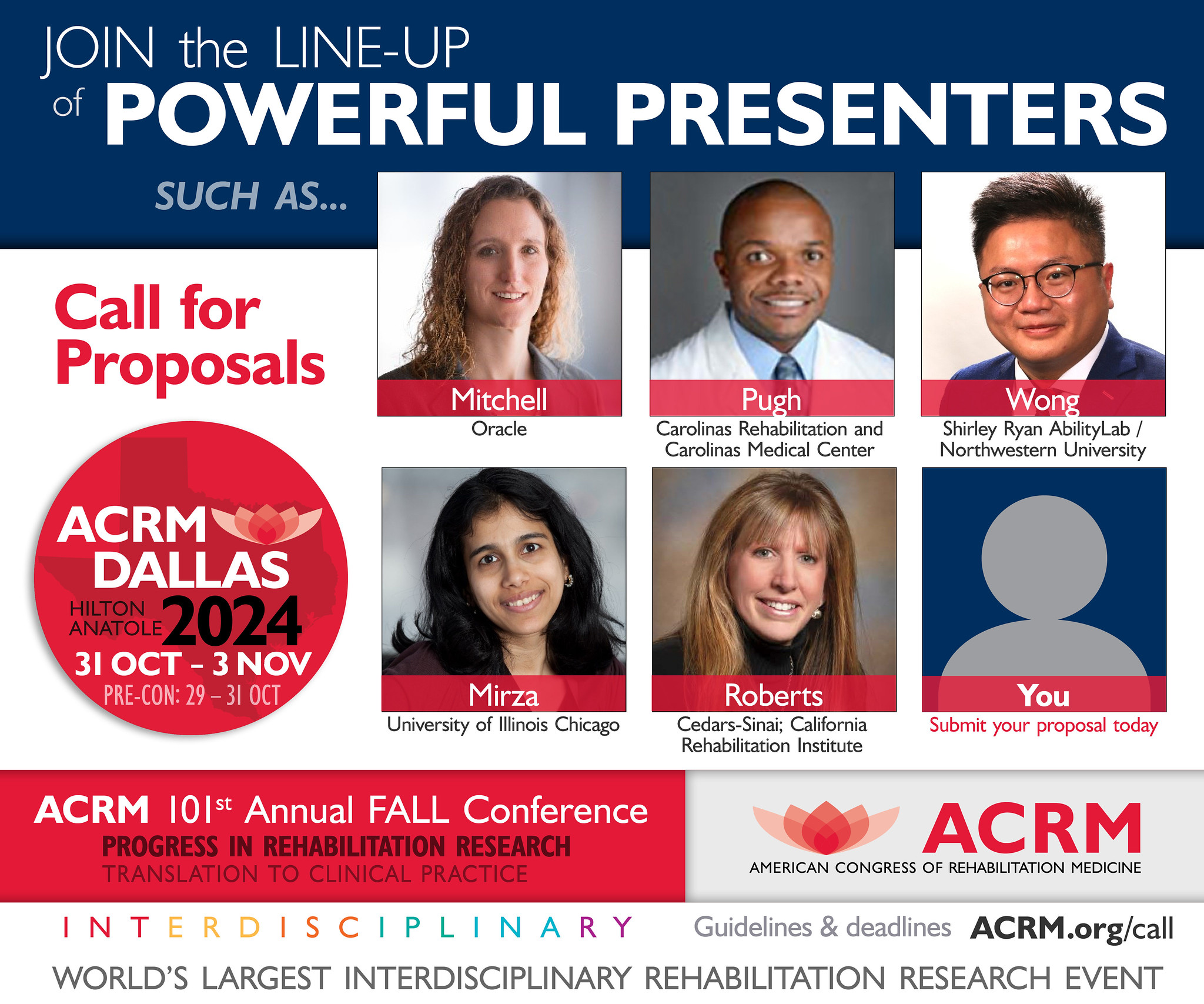Tolu Oyesanya, PhD, RN
 Tolu Oyesanya, PhD, RN, is an Assistant Professor at Duke University School of Nursing. Dr. Oyesanya’s research program centers on care of patients with traumatic brain injury (TBI) in acute and post-acute treatment settings, as well as support of their family caregivers. Her current research focuses on developing and testing transitional care interventions to improve overall health and well-being of patients with TBI discharged home from acute hospital care and their family caregivers.
Tolu Oyesanya, PhD, RN, is an Assistant Professor at Duke University School of Nursing. Dr. Oyesanya’s research program centers on care of patients with traumatic brain injury (TBI) in acute and post-acute treatment settings, as well as support of their family caregivers. Her current research focuses on developing and testing transitional care interventions to improve overall health and well-being of patients with TBI discharged home from acute hospital care and their family caregivers.
Dr. Oyesanya’s ongoing research is currently funded by two internal awards from Duke University and an external pilot award from the Center for Large Dataset Research and Data Sharing in Rehabilitation (CLDR) at the University of Texas Medical Branch at Galveston. Her internal Duke awards focus on generating data to inform the development of a transitional care intervention for Duke patients with TBI discharged home from acute hospital care and their family caregivers. She is currently conducting qualitative interviews with patients with TBI, family caregivers, and healthcare providers to identify needs related to skills, supports, resources, and goals during the transition from hospital to home (funded by Duke School of Nursing Pilot Award). Dr. Oyesanya will use these findings, in conjunction with a scoping review on care transitions literature, to inform the development a manualized intervention protocol for the transitional care intervention. The manualized intervention protocol will then undergo iterative user-testing with focus groups of patients with TBI, family caregivers, and healthcare providers to refine the intervention and determine its acceptability.
Dr. Oyesanya will also establish a feasible and acceptable process for measuring recovery and care at discharge and up to 8 weeks after hospital discharge for patients with TBI and families (funded by Duke REACH Equity Career Development Award). All findings will be used to inform future research to determine the efficacy and implementation-effectiveness of the TBI transitional care intervention for patients with TBI discharged home from acute hospital care and their family caregivers. Finally, Dr. Oyesanya’s external pilot award funded by CLDR aims to investigate contemporary trends in outcomes and patient and facility characteristics that predict discharge rehabilitation outcomes for adults with TBI who received inpatient rehabilitation facility care using 16 years’ worth of data (2002-2018) from Uniform Data System for Medical Rehabilitation. These findings will contribute to outcomes research for adults with TBI who received inpatient rehabilitation facility care, inform healthcare providers of factors increasing odds of poor discharge outcomes, and will be used by Dr. Oyesanya’s team to develop interventions aimed to address needs, allocation of resources, and transitional care planning (CLDR pilot award, Grant #P2CHD065702).
Dr. Oyesanya earned her BSN, MSN, and PhD in Nursing from University of Wisconsin-Madison. She completed a post-doctoral fellowship in Brain Injury Research at Shepherd Center in Atlanta, GA. Her research has been supported as PI, co-investigator, or trainee by several federal and intramural awards. Dr. Oyesanya is actively involved in several professional organizations, including serving as Chair-Elect of the Mentoring Task Force within ACRM’s Early Career Networking Group (ECNG) and as a member of the International Brain Injury Association and the Association of Rehabilitation Nurses.
Amy A. Herrold, PhD
 Dr. Amy A. Herrold is currently a Research Assistant Professor at Northwestern University’s Feinberg School of Medicine in the Department of Psychiatry and Behavioral Sciences. She is also a Research Health Scientist in the Department of Research Service at the Edward Hines, Jr. VA Hospital in Hines, Illinois. She received her PhD in Neuroscience from the Loyola University Chicago Medical Center in Maywood, Illinois. She then completed a three-year VA Health Services Research and Development fellowship in the area of health services research and clinical neuroscience in the Center of Innovation for Complex Chronic Healthcare at the Edward Hines, Jr. VA Hospital. Dr. Herrold later received a Polytrauma and TBI Rehabilitation Research fellowship in neurorehabilitation and addiction at the Edward Hines, Jr. VA Hospital. During this time, she received a NIDILRR Merit Mary Switzer Research fellowship, which allowed her to transition from a pre-clinical to a clinical neuroscientist.
Dr. Amy A. Herrold is currently a Research Assistant Professor at Northwestern University’s Feinberg School of Medicine in the Department of Psychiatry and Behavioral Sciences. She is also a Research Health Scientist in the Department of Research Service at the Edward Hines, Jr. VA Hospital in Hines, Illinois. She received her PhD in Neuroscience from the Loyola University Chicago Medical Center in Maywood, Illinois. She then completed a three-year VA Health Services Research and Development fellowship in the area of health services research and clinical neuroscience in the Center of Innovation for Complex Chronic Healthcare at the Edward Hines, Jr. VA Hospital. Dr. Herrold later received a Polytrauma and TBI Rehabilitation Research fellowship in neurorehabilitation and addiction at the Edward Hines, Jr. VA Hospital. During this time, she received a NIDILRR Merit Mary Switzer Research fellowship, which allowed her to transition from a pre-clinical to a clinical neuroscientist.
Dr. Herrold trained in the Department of Veterans Affairs (VA) to be a leader in the field of alcohol use disorder and mild traumatic brain injury (AUD+mTBI) neurorehabilitation. Currently, her research career focuses specifically on neurorehabilitation of co-occurring AUD+mTBI. She believes that investigating the neural underpinnings of AUD+mTBI will lead to optimal treatment development and customized medicine. She is the PI of a competing VA RR&D Career Development Award, Level-II characterizing alcohol craving at the behavioral and neural systems level through neuroimaging to develop the neuromodulatory treatment rTMS for AUD+mTBI.
Dr. Herrold will soon begin her first VA RR&D Merit award, which is a natural extension and advancement of the CDA-II work. She works with a team of interdisciplinary collaborators at Edward Hines Jr., VA Hospital, Captain James A. Lovell Federal Health Care Center, and Northwestern University. She has multi-disciplinary collaborations both within the Department of Psychiatry, Warren Wright Adolescent Center and Radiology at Northwestern University to examine the effects of sports-related mTBI and the impact of gender-specific factors. With these collaborators, Dr. Herrold has also examined the effects of cannabis use on brain structure, function and cognition. Her research mission is to develop and optimize neuroscience-informed treatments for substance use disorders and co-occurring conditions, such as TBI.
Dr. Herrold has over 25 publication and other scholarly products, including a book chapter, special issue contributions, and review articles. She frequently gives invited presentations at federal, national and international conferences. She is an active ACRM member and she serves in several leadership roles. She is the Chair-Elect of both the Neuroplasticity Networking Group and the Early Career Development Course (ECDC) of the Early Career Networking Group (ECNG).
Emily Nalder, PhD, OT Reg. (Ont.)
 Dr. Emily Nalder is an assistant professor in the Department of Occupational Science and Occupational Therapy, and an Associate Member of the Rehabilitation Sciences Institute at the University of Toronto, where she has been working since 2015. She received a Bachelor of Occupational Therapy degree with first class honours in 2008, and a PhD in Rehabilitation Therapy (2012) from the University of Queensland in Brisbane Australia. From 2013-14, she completed a post-doctoral fellowship in cognitive rehabilitation at the Rotman Research Institute, Baycrest Health Sciences in Toronto, Canada. In 2015, Dr. Nalder was appointed the inaugural March of Dimes Canada Paul J.J. Martin Early Career Professor (2015-2020), an endowed chair in the Department of Occupational Science and Occupational Therapy at The University of Toronto focusing on community integration for individuals with acquired brain injury.
Dr. Emily Nalder is an assistant professor in the Department of Occupational Science and Occupational Therapy, and an Associate Member of the Rehabilitation Sciences Institute at the University of Toronto, where she has been working since 2015. She received a Bachelor of Occupational Therapy degree with first class honours in 2008, and a PhD in Rehabilitation Therapy (2012) from the University of Queensland in Brisbane Australia. From 2013-14, she completed a post-doctoral fellowship in cognitive rehabilitation at the Rotman Research Institute, Baycrest Health Sciences in Toronto, Canada. In 2015, Dr. Nalder was appointed the inaugural March of Dimes Canada Paul J.J. Martin Early Career Professor (2015-2020), an endowed chair in the Department of Occupational Science and Occupational Therapy at The University of Toronto focusing on community integration for individuals with acquired brain injury.
Dr. Nalder’s research focuses on understanding how to optimise the participation and community integration of individuals experiencing cognitive difficulties due to injury (e.g., traumatic brain injury, or stroke), or due to the aging process. Her doctoral research, supervised by Drs. Jenny Fleming, Petrea Cornwell and Michele Foster, explored the process of transitioning from hospital to home after brain injury. Her post-doctoral research, completed under the supervision of Dr. Deirdre Dawson at the Rotman Research Institute, focused more on cognitive rehabilitation and specifically examined the effectiveness of tele-rehabilitation for enabling community integration, as this is an innovative delivery method that may improve access to care. More recently, Dr. Nalder has been examining resiliency in the context of traumatic brain injury to understand how individuals and families adapt following the injury. She is collaborating with a team of approximately 20 researchers, service providers and individuals with lived experience of brain injury (The TBI-Resiliency Collective) to undertake research to better understand resiliency and how it can be fostered in service delivery. This resiliency research is supported by a grant from the Social Sciences and Humanities Research Council of Canada.
Dr. Nalder has co-authored over 40 peer-reviewed publications or published abstracts (26 as first or senior author), and 3 book chapters relevant to brain injury rehabilitation. Dr. Nalder’s contributions to the field of rehabilitation have been recognized by awarding of several honors, including the Deborah L. Wilkerson Early Career Award from ACRM in 2017, an Early Researcher Award (ERA Round 14) from Ontario Ministry of Economic Development, Job Creation and Trade, and a Canada Research Chair in Resiliency and Rehabilitation (2019). The Tier 2 Canada Research Chair award provides $100,000 annually over a five-year term to support Dr. Nalder’s work.
Dr. Nalder has been a member of ACRM since 2013. She states that ACRM has “broadened my knowledge about rehabilitation processes and systems in different countries, and allowed me to develop collaborations with experts in the field”. She has co-authored publications with other members of the BI-ISIG Chronic Brain Injury and the Girls and Women with ABI Task Forces. Dr. Nalder is also currently the Chair of the Geriatric Rehabilitation Networking Group within the ACRM.
When asked about her greatest hope, Dr. Nalder says “it would be that resiliency is addressed explicitly in rehabilitation. I think this would ensure that we can prepare people to navigate challenges and help individuals with brain injury and their family members to live life in a way that is meaningful to them.”








